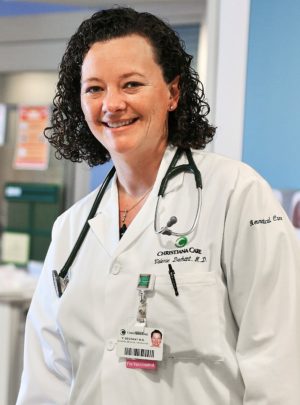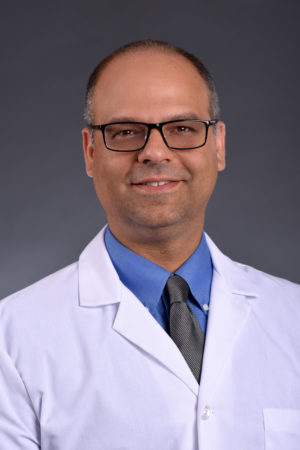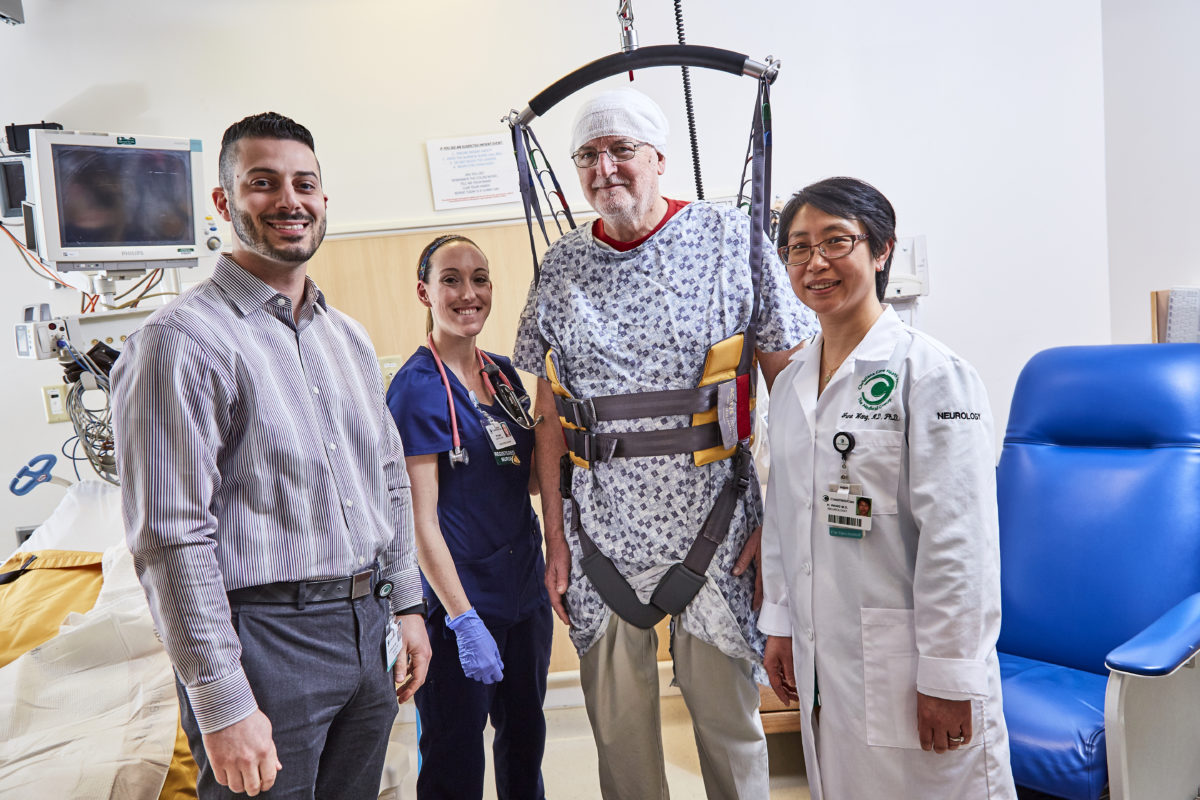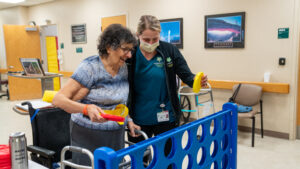ChristianaCare’s Epilepsy Center has received Level 3 designation from the National Association of Epilepsy Centers. The accreditation is awarded to epilepsy centers that have the professional expertise and facilities to provide medical evaluation and treatment for patients with complex epilepsy in inpatient and outpatient settings.
The ChristianaCare Epilepsy Center is the only program of its kind for adults in Delaware and now the only one to receive the Level 3 designation.
“We are honored that the National Association of Epilepsy Centers recognized our dedication to providing excellent care to our patients,” said Valerie E. Dechant, M.D., physician lead for ChristianaCare’s Neuroscience Service Line. “The designation validates ChristianaCare’s commitment to providing comprehensive, high-quality care to our neighbors with epilepsy.”

M.D.
The National Association of Epilepsy Centers defines four levels of epilepsy care and accredits epilepsy centers that provide Level 3 and Level 4 care. A Level 3 center provides a range of medical, neuropsychological and psychosocial services needed to treat patients with refractory epilepsy.
Level 3 epilepsy centers also provide neurodiagnostic evaluations, as well as medical, neuropsychological and psychosocial services.
A special feature of the ChristianaCare program is the Epilepsy Monitoring Unit at Christiana Hospital, one of only a few facilities in the nation using a sophisticated fall-prevention system that enables patients to move around the room safely while protecting them from injury if they have a seizure.
“Our outpatient and inpatient services for epilepsy patients — including our Epilepsy Monitoring Unit — offer specialized care close to patients’ homes, so there is no need for them to leave Delaware,” said John R. Pollard, M.D., medical director of the Epilepsy Monitoring Unit.
“Before the opening of the ChristianaCare Epilepsy Center, epilepsy patients who are often not permitted to drive had difficulty reaching centers in Baltimore or Philadelphia.”
A vulnerable population
Epilepsy is a central nervous system disorder that causes seizures — periods of unusual behavior, sensations or loss of awareness often without a clear underlying cause.
According to the U.S. Centers for Disease Control and Prevention, there are 3.4 million people nationwide with the disorder. In Delaware, there are 9,700 active epilepsy patients, including 8,400 adults.

For many patients, just keeping track of their care plan can be challenging.
Treating epilepsy involves multiple caregivers, including primary care physicians, emergency room doctors, neurologists, neurosurgeons, social workers, behavioral health specialists, medical assistants, nurses, advanced practice providers and neuroradiologists.
Patients also receive advice from such organizations as the Epilepsy Foundation and pharmaceutical and medical device companies.
“Coordinating the recommendations of all of these different caregivers can be a complicated burden on the patient,” Dr. Pollard said. “The ChristianaCare Epilepsy Center solves this problem by integrating their epilepsy care. Our center becomes a single trusted point of contact for our patients.”
Providing optimal care in focused settings
The ChristianaCare Epilepsy Center uses a patient-focused approach to diagnose epilepsy and provide ongoing care. Outpatient services for routine care are in the outpatient neurology offices located in the HealthCare Center at Christiana, across the street from Christiana Hospital. There are currently three epilepsy specialists.
The two-bed Epilepsy Monitoring Unit is the “crown jewel” of the ChristianaCare Epilepsy Center, said Dr. Dechant. Patients in the unit either have persistent episodes or are experiencing unwanted side effects of medication.
The unit has state-of-the-art video- and audio-monitoring equipment, electroencephalography (EEG) to measure brain waves and electrocardiography (EKG) to monitor the heart’s electrical activity.



